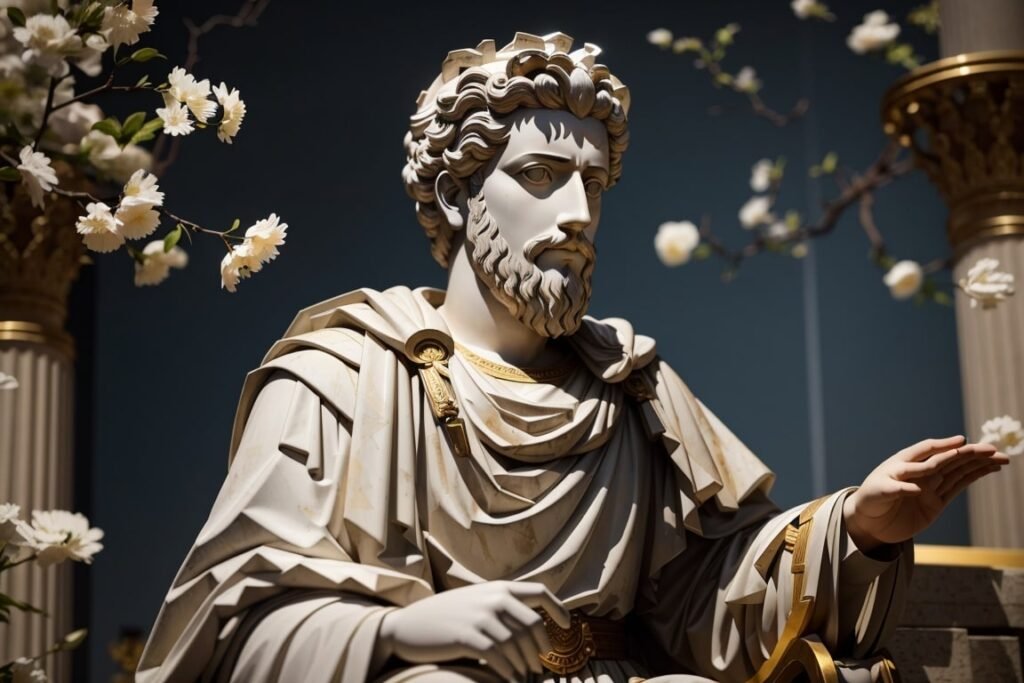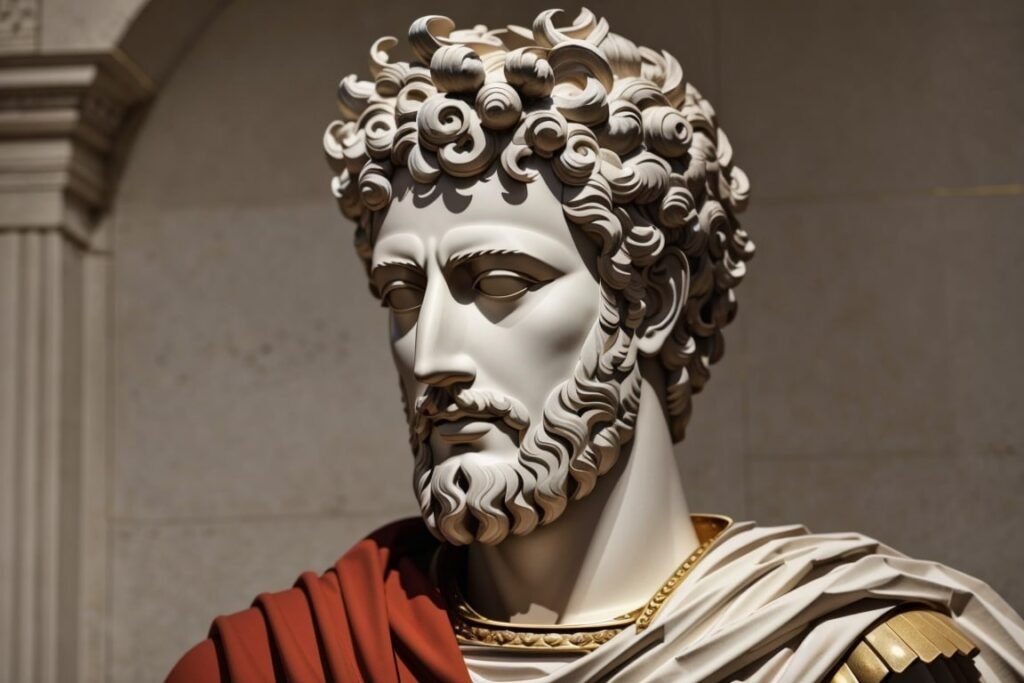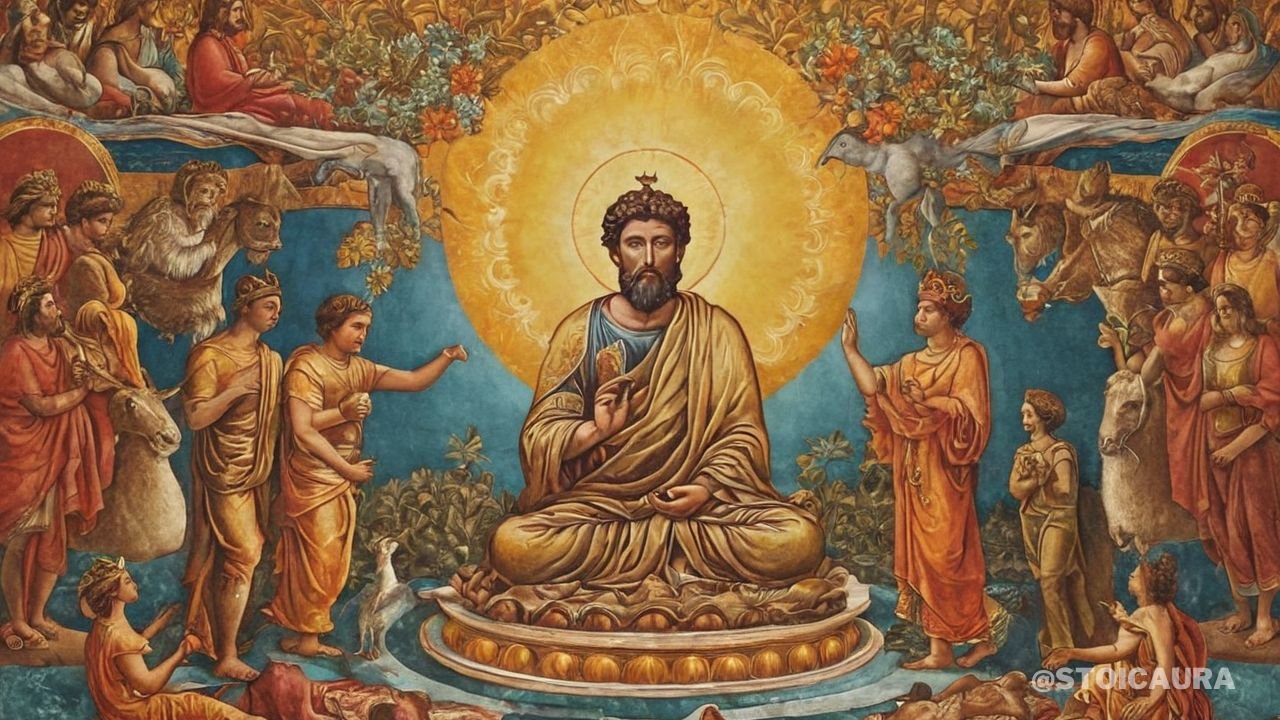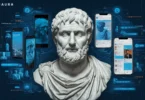
Introduction
In the annals of history, few figures stand as towering exemplars of mental resilience and inner strength as Marcus Aurelius, the philosopher-emperor of ancient Rome. Amidst the tumultuous landscape of political intrigue and social upheaval, Marcus Aurelius crafted a daily ritual that fortified his mind and spirit against the challenges of his time. His Daily Rituals for Mental Resilience have since become legendary, offering profound insights into the power of introspection and self-discipline.
In this article, we embark on a journey to unravel the secrets of the Meditative Monarch’s routine, exploring how his timeless practices can inspire and empower us in our quest for personal development and growth. Join us as we delve into the life and wisdom of Marcus Aurelius, and discover the transformative potential of his daily rituals for cultivating inner resilience and strength.
Understanding Marcus Aurelius’s Daily Rituals
Marcus Aurelius, revered as one of history’s greatest philosopher-kings, left behind a legacy of wisdom and resilience that continues to inspire generations. Central to his enduring influence are the Marcus Aurelius rituals – daily practices that shaped his mindset and fortified his spirit. At the heart of these rituals was his commitment to reflective practices, which he viewed as essential for personal growth and self-mastery. Each morning, Aurelius would engage in a period of quiet reflection, contemplating the virtues of Stoicism and preparing himself mentally for the challenges ahead.
Throughout the day, he would revisit these moments of introspection, anchoring himself in a state of mindfulness and equanimity amidst the chaos of his duties as emperor. His nightly routine included a review of the day’s events, examining his actions and responses with an honest and critical eye. Through these rituals, Marcus Aurelius cultivated a profound sense of self-awareness and resilience, enabling him to navigate life’s trials with grace and fortitude. Today, we can draw inspiration from his example, incorporating elements of his daily practices into our own lives to foster greater clarity, inner peace, and personal growth.

The Stoic Philosophy Behind the Rituals
At the core of Marcus Aurelius’s daily rituals lies the profound wisdom of Stoic philosophy, guiding his every action and thought. Embracing the Stoic principles of reflective practices, Aurelius understood the importance of cultivating a resilient mindset amidst life’s uncertainties. Central to Stoicism is the belief in focusing on what is within our control and accepting what is not, a notion that resonated deeply with Aurelius.
His rituals served as a tangible manifestation of this philosophy, providing him with a framework for navigating the complexities of his role as emperor and the challenges of daily life. By engaging in regular periods of introspection, Aurelius aimed to align his thoughts and actions with the virtues of Stoicism, fostering a sense of inner tranquility and moral clarity. Through his writings, such as the Meditations, he shared these insights with the world, leaving behind a timeless blueprint for personal growth and resilience. Today, we can draw inspiration from Aurelius’s example, integrating the wisdom of Stoic philosophy into our own daily routines to cultivate greater mindfulness, emotional resilience, and Marcus Aurelius rituals for a more fulfilling life.
Practical Application in Modern Life
Incorporating Marcus Aurelius’s reflective practices into modern life offers invaluable lessons for navigating the challenges of today’s world. By adopting his daily rituals of introspection and mindfulness, individuals can cultivate a resilient mindset that withstands the pressures of daily life. One practical application is to set aside dedicated time each day for reflection, whether through journaling, meditation, or quiet contemplation. This allows for a deeper understanding of one’s thoughts, emotions, and reactions, leading to greater self-awareness and emotional intelligence.
Additionally, embracing Stoic principles such as focusing on what is within our control and accepting the rest can help individuals manage stress and anxiety more effectively. By aligning their actions with their values and priorities, people can live with greater intention and purpose, finding fulfillment in the midst of life’s uncertainties. Ultimately, the practical application of Marcus Aurelius’s rituals lies in their ability to empower individuals to lead more meaningful and resilient lives, grounded in self-awareness, integrity, and inner peace.
Conclusion
In conclusion, Marcus Aurelius’s reflective practices serve as timeless tools for nurturing mental resilience and emotional well-being. Through his daily rituals of introspection and mindfulness, Marcus Aurelius exemplified the power of self-awareness and stoic philosophy in facing life’s challenges with grace and fortitude. By embracing these practices, individuals can cultivate a deeper understanding of themselves and the world around them, leading to greater clarity, peace, and fulfillment in life. Whether through journaling, meditation, or quiet contemplation, integrating Marcus Aurelius’s rituals into daily life offers a pathway to inner strength and resilience.
Moreover, the principles underlying his reflective practices—such as focusing on what is within our control, accepting the inevitable, and living with integrity—provide valuable guidance for navigating the complexities of modern life. By honoring these teachings and striving to embody them in our daily lives, we can follow in the footsteps of Marcus Aurelius, embracing a life of purpose, wisdom, and serenity. As we reflect on his legacy, let us heed his timeless wisdom and embark on our own journey toward greater self-discovery and personal growth.
Call-to-Action
Explore the transformative power of Marcus Aurelius’s daily rituals for mental resilience. Incorporate Stoic principles into your daily life and discover the strength and clarity that comes from inner reflection. Start your journey towards greater resilience and fulfillment today.
FAQs
- What were Marcus Aurelius’s daily rituals?
- How did Marcus Aurelius incorporate reflection into his daily life?
- Why are Marcus Aurelius’s daily rituals considered important?
- What can we learn from Marcus Aurelius’s reflective practices?
- How can we incorporate Marcus Aurelius’s rituals into our modern lives?







